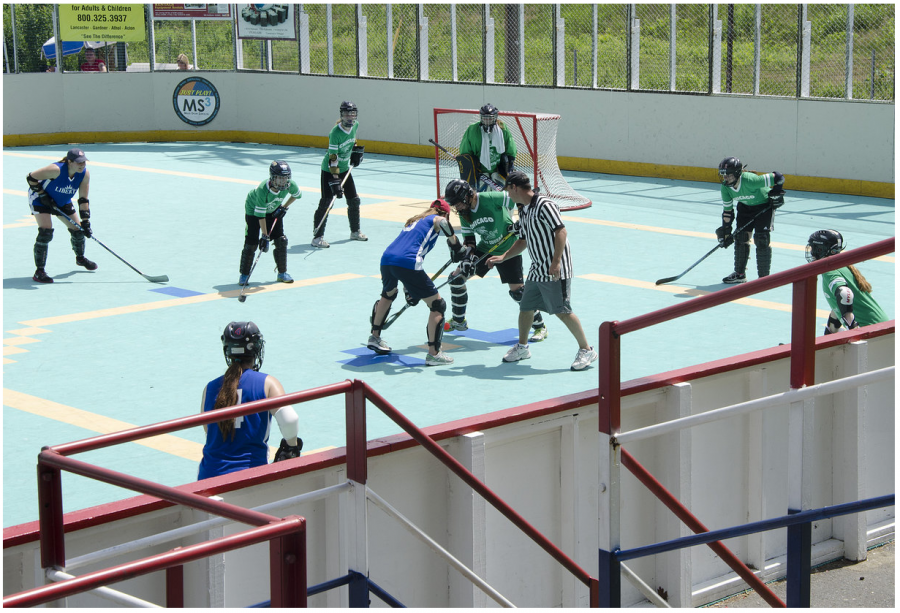Lady Cobras lie in wait for winter to thaw
The Chicago Lady Cobras surprised fans and competitors in last year’s Women’s U.S. Nationals dek hockey tournament in Leominster, Massachusetts as the first and only team from the Midwest to compete and took third place.
March 31, 2014
Like many Chicago residents, the Chicago Lady Cobras are currently waiting for the snow to melt and ice to thaw to begin the 2014 dek hockey season.
The Lady Cobras are the Midwest’s only female dek, or street, hockey team. Formed in 2013, the players wanted to compete in the Women’s U.S. Nationals in Massachusetts that year. They formed their roster and made the trip to Boston to represent the Midwest last year. Though they placed third in the 2013 tournament, the Lady Cobras currently have their sights set on this year’s tournament.
“Going to nationals right off the bat was nerve-racking but very exciting,” said Lorissa Sernus, a defensive player on the team. “We had no idea what the competition was going to be like.”
Craig Crockett, one of the team’s coaches, said though they did not place in the nationals, the team played very competitively. Sernus said the team raised money, practiced hard and felt confident traveling to the competition.
“We got to Boston in our Chicago jerseys and the other teams seemed pretty shocked [that] we were the only ones not from the east coast,” Sernus said. “It was definitely cool.”
Many of the Lady Cobras began playing hockey together when they were in elementary school, said Crockett. Many of the players were involved with ice hockey growing up and knew each other through youth leagues, according to defensive player Tammi Nowicki.
Nowicki said when she started playing, she had no idea dek hockey competitions existed at the national level. She joined the Lady Cobras after former ice hockey teammates suggested that she give dek hockey a try.
Nowicki said the transition from playing on ice to hardwood was difficult for her because players who are accustomed to gliding on skates instead of running require endurance training, like jogging.
“Having to keep your feet moving the whole game is not the easiest thing to get used to,” Nowicki said.
Sernus said she has been in leagues with some of the other Lady Cobras for much of her hockey career. She said she did not play for a couple of years during high school, but the skills she learned throughout her training remained with her and were not too challenging to retain because she has been utilizing them for most of her life in ice hockey.
Players use different muscles in their legs when making the transition from playing on ice toplaying on ice to playing on solid ground, in which the team focused on its training routine, Crockett said.
The team practices twice a week and when the women first started out they would scrimmage against some of their male opponents, Sernus said. According to Crockett, the team had some trouble dealing with weather changes during the season.
“When we were playing and practicing normally, it was wintertime,” Crockett said. “At the nationals in Boston, it got up to 95 degrees. That’s a huge temperature range.”
While the Lady Cobras are uncertain of their plans for the current season, which began in March, Sernus said she and some of her teammates will be playing with other teams throughout the spring and summer seasons.
Some of the women are staying competitive by spending the offseason practicing with the men’s team but have plans to start their own training come spring, Crockett said.
The team is hopeful that its participation in dek hockey at the national level will help raise awareness of the sport in the Midwest, Sernus said.
“When we started out, we didn’t even know how many teams were out there,” Nowicki said. “I’ve had a blast and I’d like to encourage others to try to become involved.”








